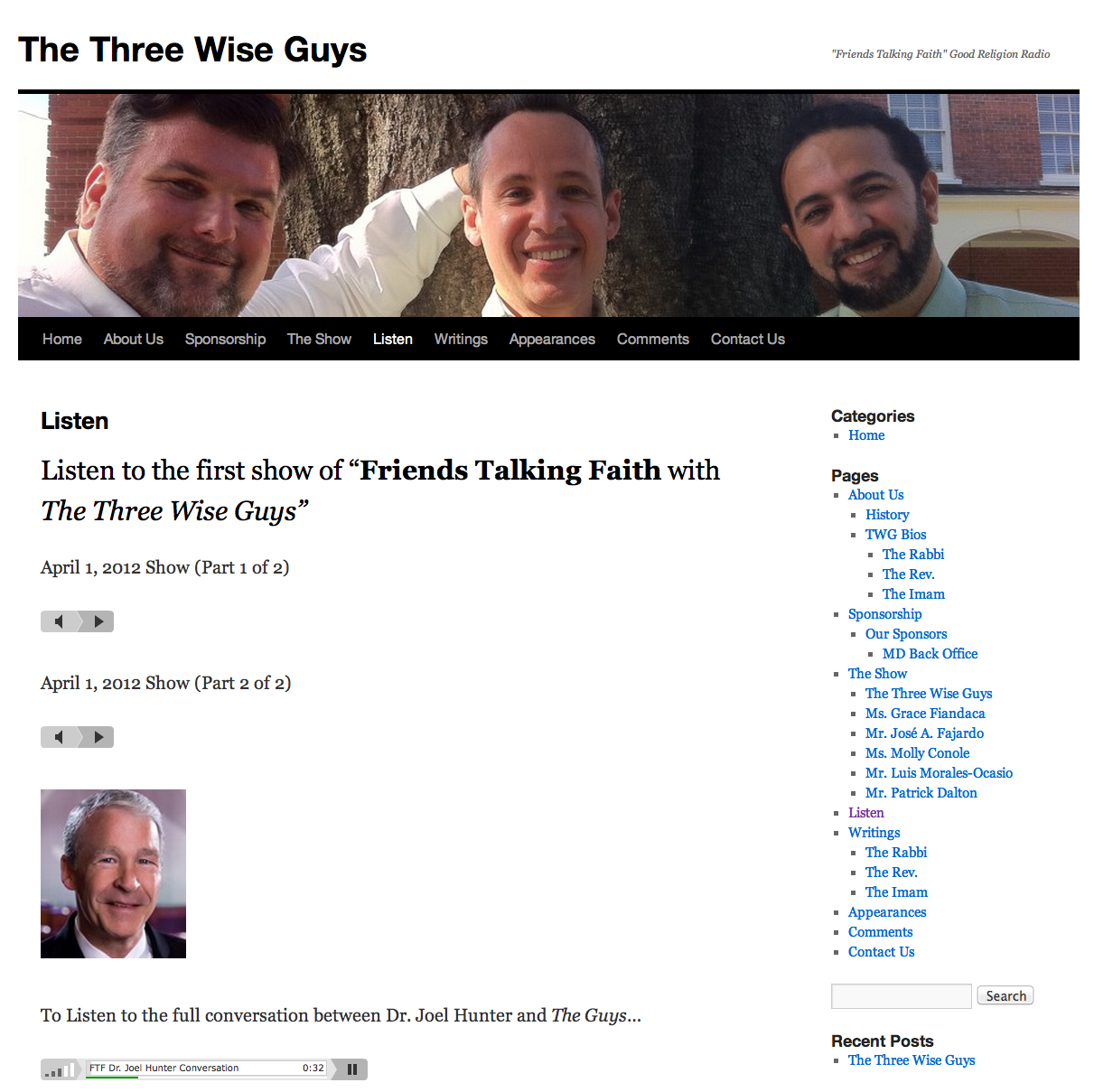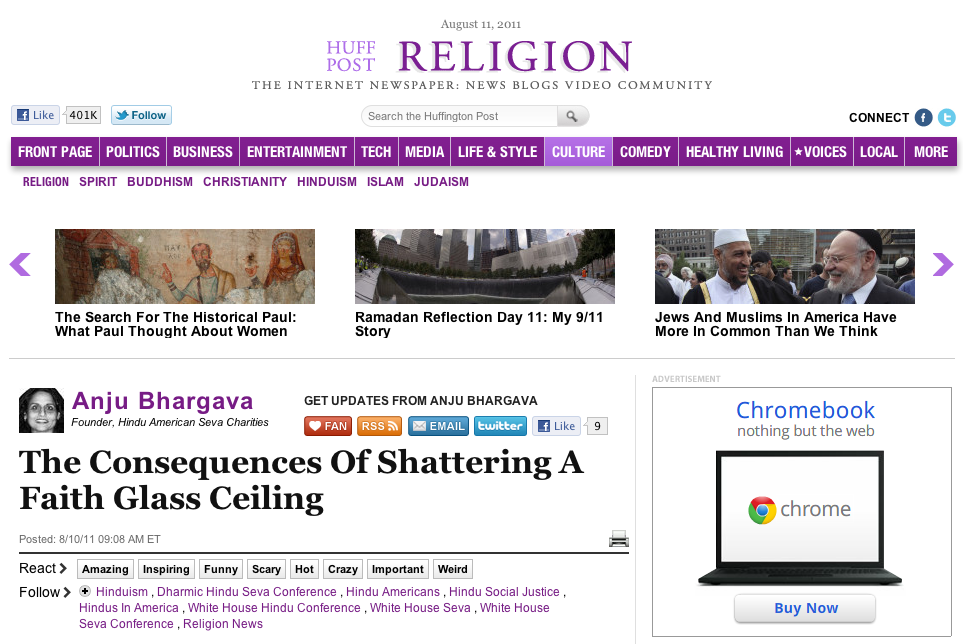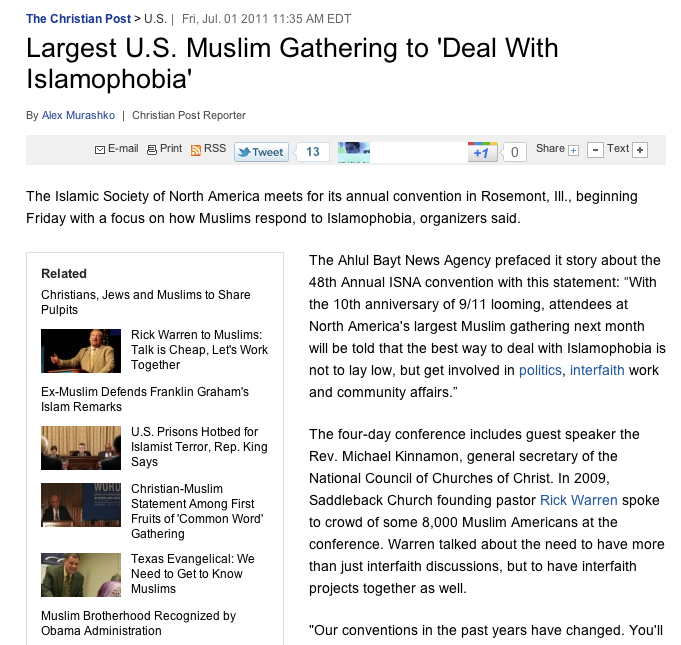The Jewish Week
Evangelicals At The Crossroads
A younger generation is pushing a more nuanced analysis of the Israeli-Palestinian conflict; should Jews be worried?
2/19/14, THE JEWISH WEEK, by Jonathan Mark, Associate Editor
Last December, Palestinian Authority President Mahmoud Abbas sent Christmas greetings recalling the ancient birth of a holy child, a Palestinian child: Jesus, the “Palestinian messenger” of hope. Some in the West surely thought Abbas’ words as meaningless as a popular Arab song referring to Tel Aviv as a Palestinian city, or claims that a Jewish Temple was never on the Temple Mount. But in the little town of Bethlehem, the Bethlehem Bible College, an Evangelical institution, is preparing for “Christ at the Checkpoint,” a four-day conference that begins on March 10.
The conference will address, says its website, “the injustices in the Palestinian territories.” The previous conference, in 2012, issued a “manifesto” that turned Evangelical support for Israel on its head: “Any exclusive claim to land of the Bible in the name of God is not in line with the teaching of Scripture,” it read. The statement continued, “[The] suffering of the Palestinian people can no longer be ignored,” and “Christians must understand the global context for the rise of extremist Islam.”
For those asking, “What would Jesus do?” the answer, according to the conference website, is that Jesus would be alongside the “oppressed” Palestinians at Israeli checkpoints, and that’s where Evangelical support should be, as well.
This is not just the talk in Bethlehem. A December 2011 article in Relevant, a Florida-based magazine aimed at young American Evangelicals, gave a similar twist to the Gospel: There’d be no Three Wise Men if you “place an eight-meter-high wall between the Magi and Baby Jesus. … He’d be without citizenship. …
Considered to be a security threat from birth, he’d receive his green Palestinian ID at the age of 16. ... He would be prohibited from crossing the wall into Jerusalem only 15 minutes away.”
And yet the lineup for the “Checkpoint” in March is attracting some of the most influential Evangelicals in the West: William Wilson, president of Oral Roberts University; Geoff Tunnicliffe, secretary-general of the World Evangelical Alliance; and Joseph Cumming of Yale University’s Center for Faith and Culture.
What happened to all that unquestioning Evangelical Zionism we thought we knew so much about? With the Boycott, Divestment and Sanctions (BDS) movement gathering steam, it’s a question that takes on added urgency as Israel becomes increasingly isolated on the world stage.
Evangelical Zionism, the political and spiritual heart of U.S. support for Israel, may have peaked, with an internal schism threatening to erode Israel’s most important foreign alliance, observers are beginning to say. Though Christian Zionists are still the dominant majority among America’s 50 million Evangelicals, a new wave of Evangelicals, the “millennials,” more interested in “social justice” than geopolitics. And they are advocating an “even-handed” approach to the Israel-Palestinian problem, with some more sympathetic to the Palestinians.
David Brog, executive director of Christians United For Israel (CUFI), an Evangelical Zionist group known for being enthusiastically supportive of Israel, told The Jewish Week that he sensed the left’s growing strength. “The last three or four years I’ve started to get that sinking feeling, they were making inroads …. influencing Evangelicals well beyond the extreme left. ... They are finding an interested audience" among the young. The “anti-Israel" message, said Brog, “is resonating. This generation is in play.” (CUFI, chaired by Pastor John Hagee, has ruffled some feathers in parts of the Jewish community for at times staking out positions to the right of Israeli and U.S. policy regarding the Israeli-Palestinian conflict.)
Jews, said Robert W. Nicholson, an Evangelical writer, should know that what drives traditional Christian Zionism is not messianism or conversion but Scripture, “belief in the truth of God’s eternal covenant” with Israel; that God will “bless those who bless” Israel and “curse those who curse.”
However, younger Evangelicals are reportedly less “text-oriented” than their elders, so Israel — whose Evangelical support is driven by biblical text, with past and future promises — is at a disadvantage when juxtaposed with the Palestinian claims for social justice in the here and now.
In Mosaic, the Tikvah Fund’s online journal of Jewish ideas, Nicholson warns that some at the “Checkpoint” conference may express a concern for “peace, justice, and reconciliation.” But what this actually translates to, he says, “is unceasing criticism of perceived Israeli injustice, racism and occupation, peppered with special disdain for Evangelical Zionists who allegedly exacerbate the conflict” by supporting Israel.
The 2010 inaugural “Checkpoint” conference (held every two years) featured Palestinian Rev. Naim Ateek, who once sent out the Easter message, “Jesus is on the cross again with thousands of crucified Palestinians around him. ... The Israeli government crucifixion system is operating daily. Palestine has become the place of the skull.”
Rev. Joel Hunter is among the more centrist leaders in the “Checkpoint” camp. Pastor of an Evangelical megachurch called Northland, with 20,000 congregants at several locations in and around Orlando, Fla., he serves on the board of the World Evangelical Alliance (representing 600 million) and the National Association of Evangelicals (representing 30 million). Indicative of those Evangelicals who don’t want to be considered interchangeable with Republicans, he is the author of “A New Kind of Conservative,” advocating a nonpartisan approach.
A speaker at the 2012 “Checkpoint,” Rev. Hunter told The Jewish Week, “I’m well aware and regret the insecurities that this conference has brought about, some of it justifiable because of some of the participants, and we all get that. But the point of the conference is to identify and hear from Arab Christians. While I was there [at the last conference] I spoke to many people and did not hear one word about Israel as an enemy.” (Ateek didn’t speak at the 2012 conference.)
Everyone agrees, said Rev. Hunter, about the need for “the security and ongoing prosperity of Israel, which is our very good friend and important to our scriptures. But there has been a long theological strand that has been predominant in the loudest voice of the Evangelical movement, identifying the modern-day State of Israel with the [prophecies of the] Hebrew Scriptures. … Anything that would present a more balanced, more compassionate view for all those living in the land, and telling all of their stories was seen as a threat, as a heresy. As we learn more and more about the complications of the peace process, and of the legitimate and significant sufferings of those who have been limited for the sake of security, we want to include them. It doesn’t at all diminish our loyalty to Israel, but it does help us see the other side of the story.”
However, after the 2012 conference defended by Rev. Hunter, the Evangelical magazine Charisma magazine had its doubts, and headlined: “Did Christ at the Checkpoint Conference Undermine Israel?”
The home page for next month’s “Checkpoint” features a graphic depicting Israel’s security wall as a high, dark and foreboding prison wall. Dwarfed by the wall, a Palestinian is planting an olive tree, symbol of peace.
Lee Smith, a senior editor at The Weekly Standard, feared the negativity. He warned in Tablet, “If the ‘Christ at the Checkpoint’ camp wins out, the pro-Israel Jewish community that once looked warily upon evangelical support may come to regard that movement with nostalgia.”
And “bitter regret,” adds Nicholson; regret for the way Jews have been dismissive of Evangelical Zionists. “Christian Zionism cannot be taken for granted.”
Other than Orthodox Jews, American Evangelicals are still the leading supporters of Israel. A 2013 Pew survey found that 82 percent of Evangelicals believe that Israel was given to the Jewish people by God, but 18 percent are no longer certain; 42 percent of Evangelicals now believe that Israel and a Palestinian state can coexist peacefully; a minority opinion but a substantial one.
♦
Among the advocacy groups linked to the new Evangelicals is the Telos Group, founded in 2009 by Todd Deatherage and Gregory Khalil. Deatherage, an Evangelical Republican, worked as chief of staff for Sen. Tim Hutchinson (R-Ark.) and later for the George W. Bush state department; Khalil, a Christian Palestinian, is, according to the Telos website, a “longtime Democrat and a former adviser to Palestinian leaders on peace negotiations.”
Telos, on its website, states that peace would be more likely if Evangelicals were to “pursue the common good for everyone in the Holy Land,” Palestinians as well as Israelis.
Telos’ Deatherage told The Jewish Week, “People try to put us — and the whole situation — in a box, that you can’t be pro-Israel if you’re pro-Palestinian. I do think there can be another way that could encourage a positive difference, as long as it doesn’t devolve into a zero-sum approach. I see that as a dead end — for both peoples.”
Trips to Israel, sponsored by Evangelicals on both sides of the divide, underline the different narratives that have taken hold. The Evangelical Zionists, for example, promote the idea that the Israeli Christian population is the only one in the Middle East that is growing, whereas the Christian population in the Islamic-dominated Gaza and West Bank is shrinking.
On the other end, one of the “new Evangelicals,” who asked not to be named, told The Jewish Week, “I have met with a lot of Palestinian Christians through the years and I have never met a Palestinian Christian who said, ‘My family left here because of Muslim pressure or persecution. Never once. I’ve heard many of them say, ‘We left because it’s too hard to live here. I can’t get from here to there without going through checkpoints. I don’t have educational or economic opportunities. We only have water once a week in our home. That is the reason that Palestinian Christians have stated to me why they’ve left. Christians are not fleeing Bethlehem because of Muslim persecution.”
Yes, polls show that the Evangelicals, as a whole, are still very pro-Israel, but CUFI’s Brog warns, “I’m worried that what we’re seeing could translate, in a generation, to a real shift in the community.”
SOURCE: http://www.thejewishweek.com/news/national/evangelicals-crossroads




